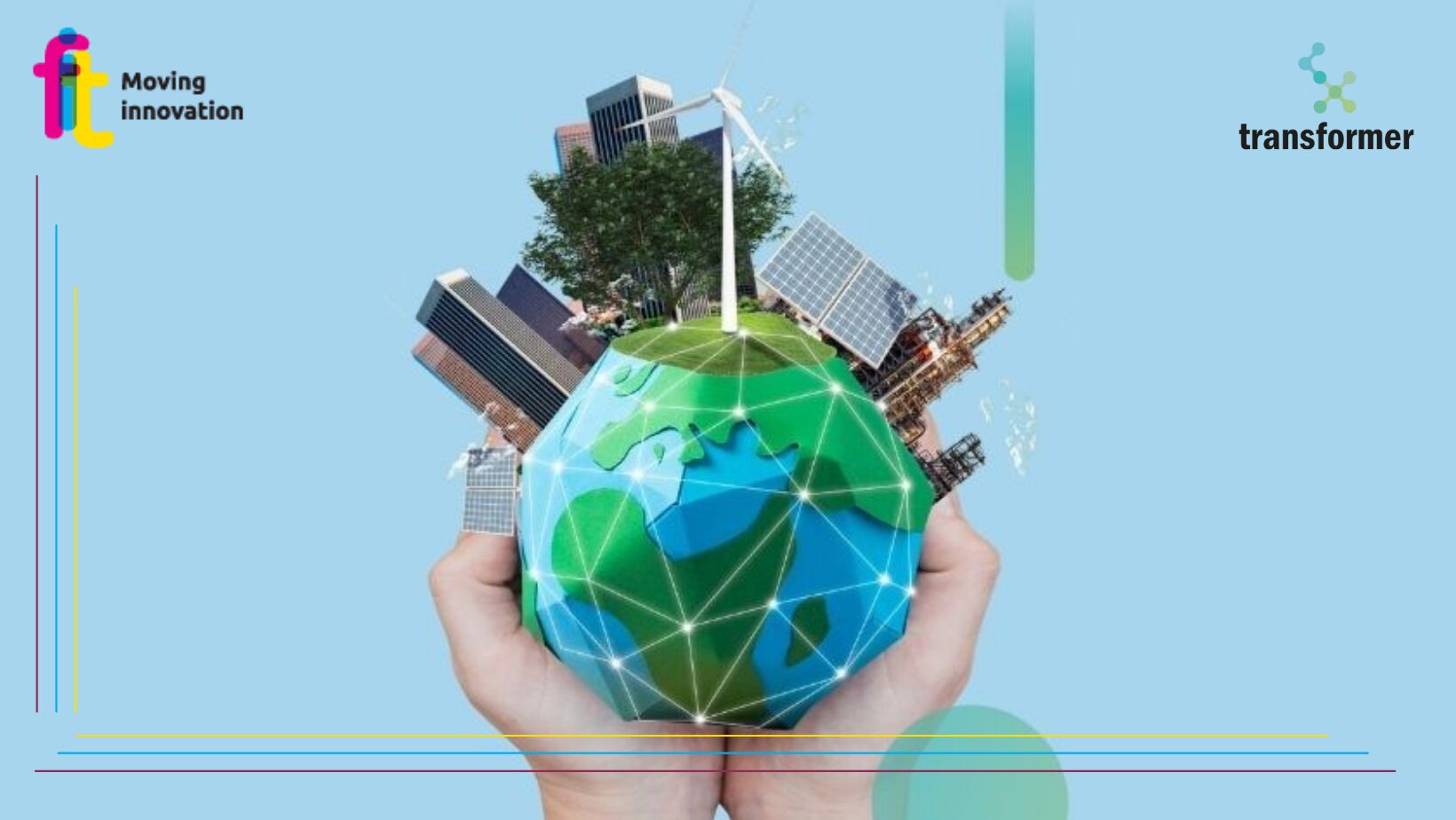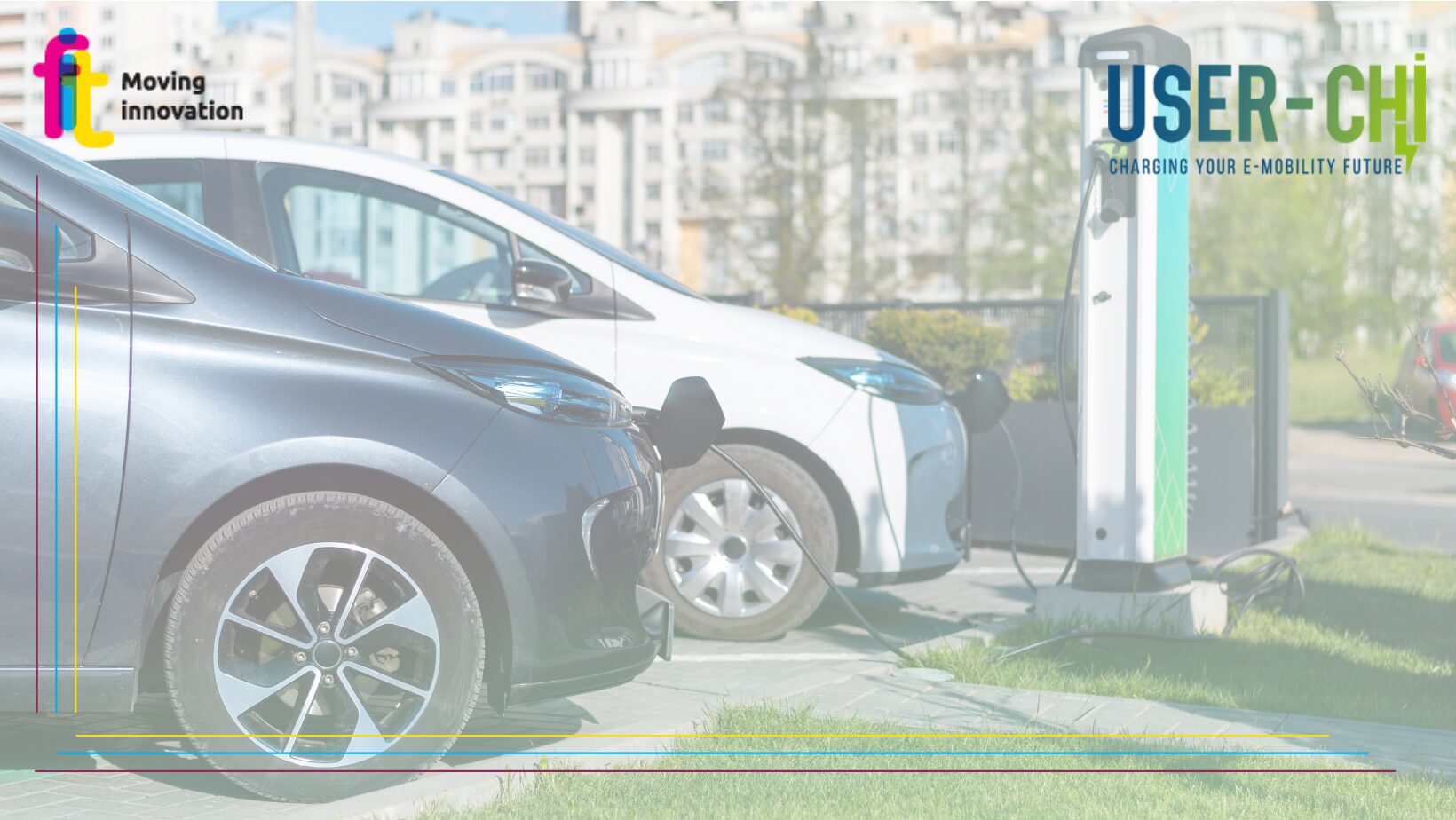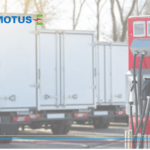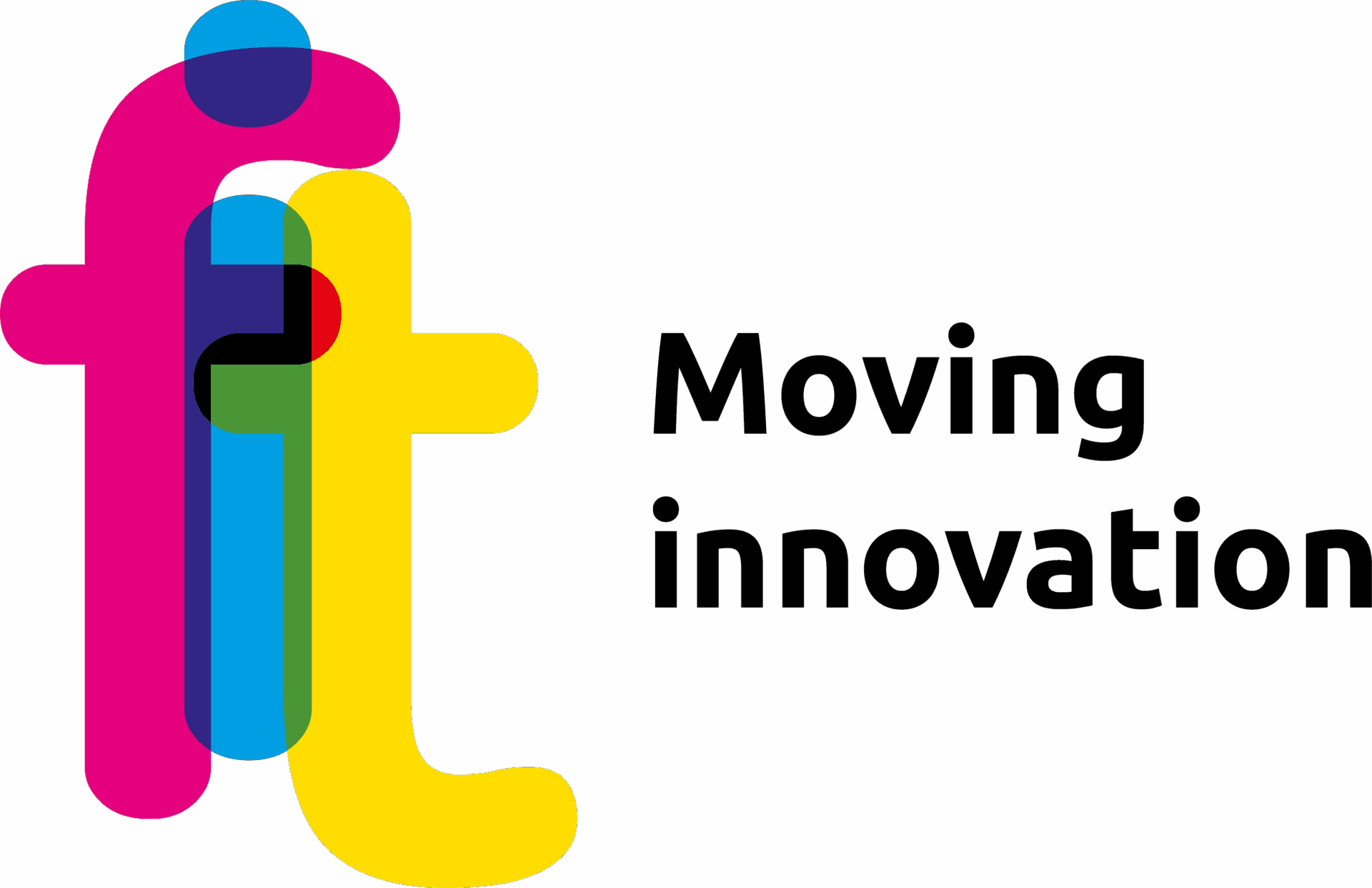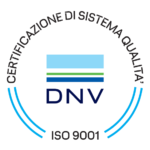TRANSFORMER project, accelerating the transition to climate neutrality through the Transition Super Lab approach
The importance of systemic innovation for the transition to a fully decarbonized economy
Human-induced climate change endangers the lives and livelihoods of billions of people and other life forms on our planet. It is therefore considered one of the most significant challenges of our time. Incremental changes and single solutions are insufficient to address the urgency and complexity of this historical challenge. Instead, it requires systemic solutions that rapidly and fundamentally transform the way in which energy, resources, goods, and services are produced and used.
However, many concepts and projects aimed at contributing to such a transformation often quickly fall apart when theory collides with technical, environmental, and socioeconomic realities. This is why there is a growing conviction among scientists and politicians that the complexity of such a fundamental transformation requires an approach that allows the simultaneous development and testing – together with affected stakeholders – of a portfolio of large-scale systemic solutions for climate neutrality.
This is the core idea of the Transition Super Lab (TSL) approach, which is applied in the TRANSFORMER project: the development and implementation of “a real-life laboratory” where systemic innovation for the transition to a fully decarbonized economy is tested at scale in locations where particularly difficult transition efforts will be required.
Tuttavia, molti concetti e progetti volti a contribuire a tale trasformazione spesso vanno spesso in frantumi quando la teoria si scontra con la realtà tecnica, ambientale e socioeconomica. Per questo motivo, tra gli scienziati e i politici sta crescendo la convinzione che la complessità di una trasformazione così fondamentale richieda un approccio che permetta di sviluppare e testare simultaneamente – insieme alle parti interessate – un mix di soluzioni sistemiche su larga scala che possano favorire la neutralità climatica.
È proprio questa, infatti, l’idea centrale dell’approccio del Transition Super Lab (TSL), applicato nel progetto TRANSFORMER: lo sviluppo e l’implementazione di “un laboratorio di vita reale” in cui l’innovazione sistemica per la transizione verso un’economia completamente decarbonizzata viene testata su scala più ampia (es. regionale) in luoghi in cui sono e/o saranno necessari sforzi di transizione particolarmente difficili.
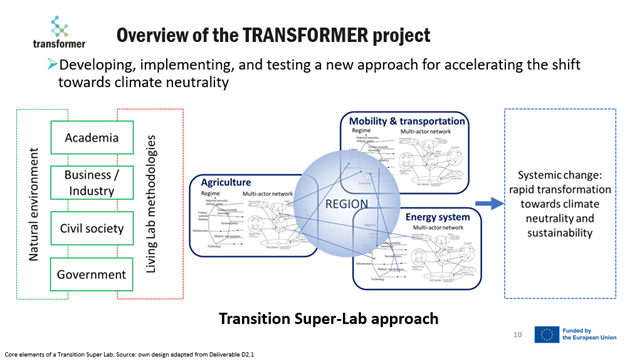
Accelerating the transition to climate neutrality with the TRANSFORMER project, here’s how
TRANSFORMER project seeks to establish long-term systemic transformation frameworks for European regions to hasten the transition towards climate neutrality. This is accomplished through the creation of TSLs, which are piloted in four distinct regions: the Ruhr Area in Germany, Emilia Romagna in Italy, Lower Silesia in Poland, and Western Macedonia in Greece. Each of these regions has its unique challenges and socio-technical systems that will impact the TSL development, objectives, and stakeholders.
Although the TSL concept is still in its conceptualisation phase and has yet to be comprehensively defined, it is widely understood as an ecosystem organised to accelerate climate neutrality through innovation, digitalization and cross sectorial synergies employing Living Lab approaches to address significant systemic challenges with the aim of rapidly and sustainably transforming regional systems.
The TSLs began their vision development process before the project start and refined their visions as follows (during the project itself):
- Emilia Romagna TSL has a three-fold vision, aiming to promote and increase cycle mobility to improve sustainable mobility; improve and spread the mobility management activity in order to reduce traffic congestion and improve the use of electric vehicles; and optimize the infrastructure and the use of the electric vehicles charging points in the urban city centres of Emilia-Romagna region.
- Lower Silesia’s vision is to develop zero-emission transport in the Copper Valley region.
- Ruhr Area aims to be one the greenest industrial regions in Europe with the use of hydrogen.
- Western Macedonia is striving for diversification of the economy through climate neutral energy production, for which three sub-visions were developed. These are diversification of clean energy (renewable energy sources and hydrogen) and clean mobility; incorporation of green agriculture and circular economy; and the transition of the city of Kozani to a zero-pollution city supported with a new open Living Lab.
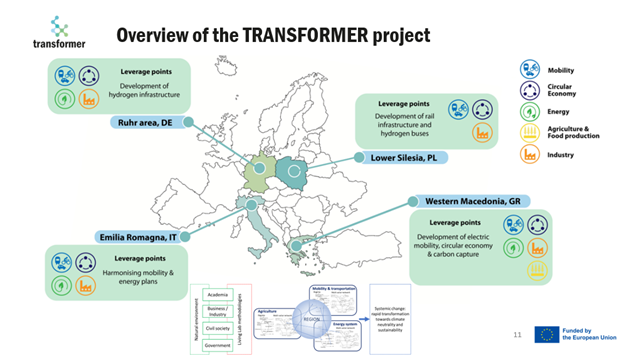
The main objectives of the project
The ambition of the TRANSFORMER project is to design long-term systemic transformation frameworks for regions across Europe in order to accelerate the shift towards climate neutrality.
The systemic transformation is achieved by developing and implementing a portfolio of connected solutions (“e.g., Pilot use cases”) which engage multiple leverage points at the intersection of sociotechnical regimes simultaneously in order to achieve a rapid and more efficient transformation.
Therefore, the adaptation of living lab methodologies to a large scale and with a focus on systemic transformation can be regarded as the core characteristics of a Transition Super-Lab:
- Adaptation and application of enriched living lab methodologies (co-creation, experimentation and evaluation)
- Aiming at large-scale systemic solutions for a rapid transition to sustainability
- Applying a portfolio approach of measures (experiments) and using multiple leverage points for systemic change simultaneously
The main tools used by TRANSFORMER
The project developed several tools including a Roadmap blueprint, a toolkit and a knowledge hub with the aim to support the pilot regions but also to be applied by other regions across Europe.
- Roadmap blueprint: the Transition Super-Lab Roadmap serves as a guide for regions interested in developing their own Transition Super-Lab (TSL). It draws upon insights gained from the TRANSFORMER project, where the TSL concept was developed and tested in four European regions (Emilia Romagna, Lower Silesia, Ruhr Area, and Western Macedonia).
- Toolkit: the toolkit supports the development and the implementation of the Transition Super-Labs (TSL). The idea is to enable significant up-scaling of the TSLs by setting up and operating a set of tools able to attract different interests of public authorities, enterprises, financers, investors and other related communities such as researchers and civil society.
- Knowledge Hub: the Knowledge Hub, serves as a step-by-step advisory hub to build competence to regions and support the ecosystems of actors in evolving a cross-sectoral transition towards climate neutrality, through innovation. To transfer knowledge on the TSL approach, methodologies/tools, strategies, performing practices and solutions, the Knowledge Hub includes a collection of knowledge items from both external sources (other projects/initiatives/open innovation community) and the involved Super-Labs (validated within the pilot process) that are structured along the phases and steps of the TRANSFORMER transition model to guide users through the Hub. The Knowledge Hub is accessible here, and through the TRANSFORMER website.
The role of FIT Consulting within the project
FIT, as main activity, was responsible for the development of the project Toolkit.
In particular, FIT:
- Took care of the customization of the matchmaking platform of the project that is accessible here;
- Contributed to the organization of the local events (i.e. TRANSITIONCAMPS) held in the four Regions;
- Investigated additional tools to include in the toolkit to be used by other regions interested in the TRANSFORMER approach;
- Wrote the guidelines for the evaluation of the toolkit.
TRANFORMER’s final event
After two years of intensive work, the final event of the Transformer Project took place in June 2024 at the Ruhr-Universität Bochum (Germany). The event was an opportunity to discuss the potential of the TSL approach and to address the question of how we can drive the transition to climate neutrality in an inclusive and just way. Find out more here.
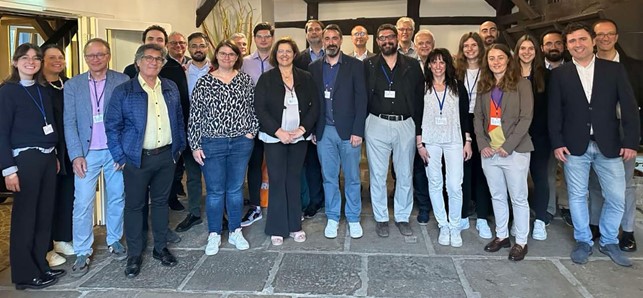
For more information on the TRANSFORMER project: https://www.transformer-project.eu/
For further information, please contact the author of this article: Paola Astegiano, Senior Project Manager FIT, [email protected]

